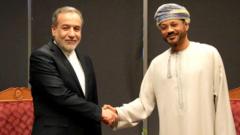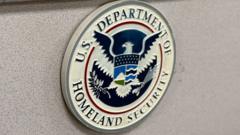Somaliland, an autonomous region in the Horn of Africa, is pursuing statehood from the U.S. by offering strategic assets like the Berbera Port and airstrip. This move is seen as a way to enhance U.S. interests and stability in the region, while also raising concerns about the implications for regional dynamics, including relationships with Somalia and other allies.
Somaliland's Quest for Recognition: A Strategic Move for U.S. Interests?

Somaliland's Quest for Recognition: A Strategic Move for U.S. Interests?
In the face of geopolitical shifts, Somaliland seeks U.S. statehood in exchange for leasing vital infrastructure, positioning itself as a counter to China's influence in the region.
In the Horn of Africa, Somaliland, an autonomous region with a population of five million, is intensifying its bid for statehood, eyeing a potential arrangement with the U.S. government. Since declaring independence from Somalia in 1991, Somaliland has maintained its governance structures, holding multiple recognized elections, and has established a unique identity bolstered by its own currency and passport.
Amidst a backdrop of mounting geopolitical tensions, particularly with a growing Chinese presence, Somaliland’s leadership believes that an endorsement from the U.S. could facilitate substantial foreign investments and enhance its international relationships. The proposal includes leasing two critical assets—Berbera Port and its adjoining airstrip—to the U.S. in exchange for recognition as a sovereign state.
This scenario presents dual opportunities; from Somaliland’s perspective, it could mean a pathway to stability and growth, while for the U.S., it offers a strategic foothold in a region often overshadowed by conflict and instability. The escalating shipping threats from Houthi rebels add urgency to the U.S. need for reliable partners in maritime security.
However, such recognition of Somaliland could compel significant political ramifications both within the region and beyond. Analysts caution that acknowledging Somaliland’s autonomy could embolden a wave of secessionist movements across Africa, disrupting established nations and exacerbating existing conflicts, particularly as it may alienate leaders in Somalia and raise tensions with key U.S. allies like Egypt and Turkey, who have vested interests in a united Somalia.
As the Trump administration finds itself reevaluating its diplomatic footprint in the region—considering a potential closure of its embassy in Somalia for security reasons—the Somaliland proposal emerges amid these shifting sands of policy. As discussions evolve, the implications of Somaliland's request reflect broader issues of self-determination, international diplomacy, and regional stability within Horn of Africa dynamics.























